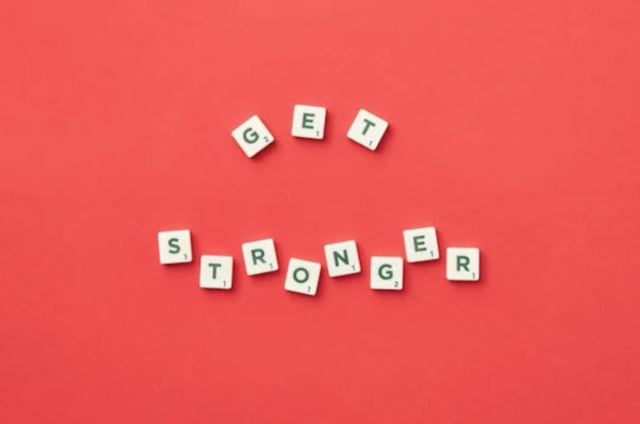Life moves incredibly fast these days. With work, family, and social obligations, it can feel like there's no time to pause, let alone find a sense of calm. Add to that the endless stream of alerts and updates from our devices, and it's no surprise that stress levels are soaring. The American Psychiatric Association recently reported that, in 2024, 43% of adults feel more anxious than the year before.
However, finding peace amid chaos is possible. This blog post offers practical, easy-to-follow strategies to help you cultivate a calm and balanced life, even with a jam-packed schedule.
Understanding the Sources of Stress
Stress is like that annoying houseguest who just won't leave. It lurks around every corner, popping up in different areas of our lives. Work deadlines, family responsibilities, financial worries, and the constant demands of technology can feel like a never-ending cycle.
And it's not just a feeling. Stress takes a real toll on our bodies and minds. Chronic stress contributes to serious health problems. Harvard Medical School highlights that when you feel stressed, your brain sends signals to your body to release hormones like adrenaline. This makes your heart beat faster, your breathing speed up, and your muscles tense up. It is called the "fight-or-flight" response, and it's designed to help you react quickly to danger.
But sometimes, your body overreacts to things that aren't dangerous, like traffic jams or work deadlines. If this happens too often, it can be bad for your health. Over time, constant stress can lead to high blood pressure, clogged arteries, and even changes in the brain that can cause anxiety and depression.
Strategies for Finding Peace
Ready to reclaim your inner peace? Let's explore some simple yet powerful strategies you can start using today.
Mindfulness and Meditation
Mindfulness means focusing on the present moment with a non-judgmental attitude. It's like hitting the "pause" button on your thoughts and tuning in to your senses.
Mindfulness helps you step off the mental hamster wheel and find a sense of calm amidst the chaos. A study published in ScienceDirect highlights that 83% of US workers experience work stress. This costs businesses up to $300 billion each year. The study suggests that mindfulness helps people see their work tasks less as threats and more as challenges (an opportunity to learn and grow).
You don't need any special equipment or years of training. Even simple exercises can make a big difference. Try taking a few deep breaths, focusing on the sensation of each inhale and exhale. Or spend a few minutes noticing the sights and sounds around you.
Physical Well-being
It's easy to think of "finding peace" as something that only happens in your mind. But the truth is, your physical well-being plays a huge role in how stressed or peaceful you feel. A study published in MDPI shows that people who exercised more often felt less stressed. Even exercising once a week made a difference
You don't have to become a marathon runner, even short bursts of activity is enough. Take a brisk walk, dance around your kitchen, or try a quick online yoga class. The CDC emphasizes that any movement is better than none. It says that adults aim for at least 150 minutes of moderate-intensity activity per week.
Simplify Your Life
Ever feel weighed down, not by physical burdens, but by some stuff? We accumulate so much in our lives, such as possessions, commitments, and even digital clutter. The minimalist movement, which emphasizes owning less and living intentionally, is gaining traction for good reason. This trend highlights how decluttering can reduce stress and boost happiness.
Start by taking a look around your home. Are there items you haven't used in months? Clothes you don't wear? Books you won't read again? Consider donating or selling them. You might be surprised how free it feels to let go of things you don't truly need.
Sometimes, simplifying means making big decisions. Perhaps you have a property that's become a burden – a second home you rarely use or an inherited house that needs too much work.
Selling a property can be complex, but it doesn't have to be. Selling a property for cash is a quick and hassle-free way to offload a property that's become a burden. You can visit https://www.johnbuysbayareahouses.com/ to learn more about selling properties for cash.
John Buys Bay Area Houses says cash buyers simplify the process by purchasing homes as-is, eliminating the need for repairs, staging, or long negotiations. If you're dealing with a second home, an inherited property, or a house that requires too much work, selling for cash can save you time, effort, and stress. Consult with experts for fast, fair offers, allowing you to close on your schedule and move forward with peace of mind.
Remember, simplifying your life isn't about deprivation. It's about creating space for what brings you joy and peace. Less stuff, less stress, more life.
Time Management
Time is our most valuable resource, yet it often feels like there's never enough of it. Time management is simple planning of your day. This doesn't have to be complicated. A simple to-do list or a calendar can help you visualize your commitments and allocate your time effectively.
And don't forget about your physical space. Cleaning up our space can be a good way to take control and improve our mental well-being. It is especially true when we're feeling stressed or overwhelmed.
Time management isn't about cramming more into your day. It's about being intentional with your time and energy so you can focus on what truly matters. And that's a recipe for a more peaceful life.
FAQs
How can I attract peace in my life?
Cultivating inner peace involves practices like mindfulness, meditation, and spending time in nature. Nurturing positive relationships, practicing gratitude, and acts of kindness can also foster a sense of peace. Simplifying your life, setting healthy boundaries, and pursuing your passions can further contribute to a peaceful existence.
How to keep a calm mind?
Cultivating a calm mind involves practices like mindfulness, meditation, and deep breathing exercises. Engaging in activities that bring joy and relaxation, such as listening to music, or pursuing hobbies, can also promote mental calmness. Additionally, prioritizing self-care through adequate sleep and regular exercise contributes to a peaceful state of mind.
What is the 3-3-3 rule for anxiety?
The 3-3-3 rule is a simple coping technique for anxiety. It involves finding 3 things you can see, then 3 things you can hear, and finally, moving 3 parts of your body. This helps ground you in the present moment and shift your focus away from anxious thoughts.
The strategies we've explored are all tools you can use to create more peace in your everyday life. Start small. Choose one strategy that resonates with you and incorporate them into your routine. Consistency is key. Over time, these small changes can make a big difference.
You have the power to create a more peaceful life. Trust yourself, be patient, and enjoy the journey. You've got this.






